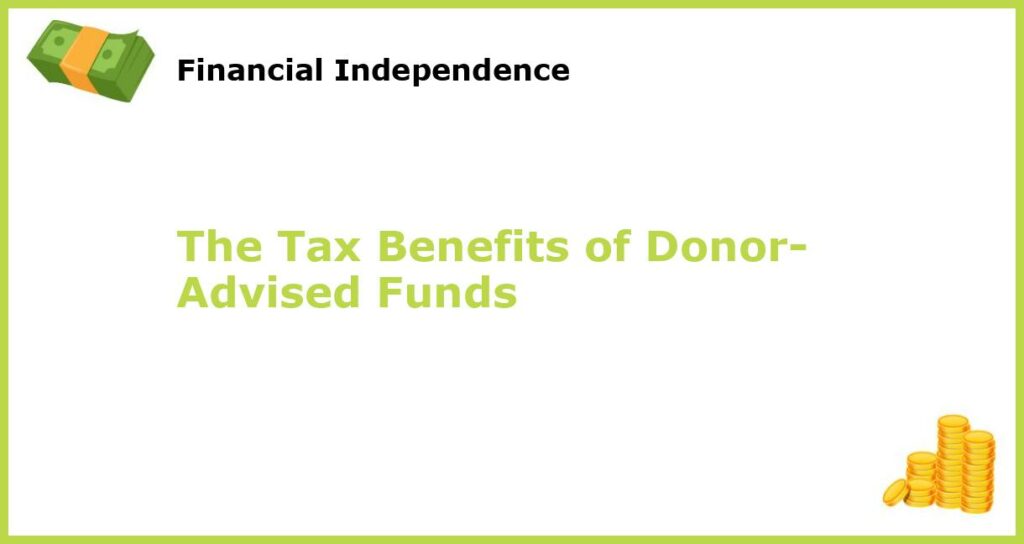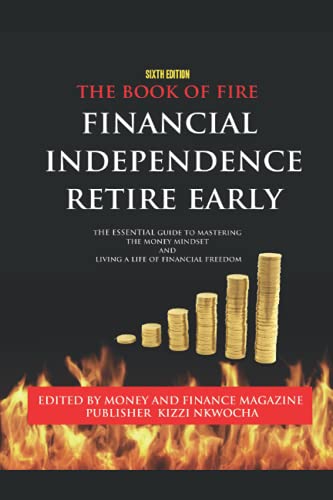Have you ever wanted to contribute to a charity but also want to receive tax benefits? That’s where Donor-Advised Funds (DAFs) come in. DAFs are a type of charitable giving vehicle that allows donors to make charitable contributions and receive an immediate tax deduction while also having the ability to support their chosen charity over time. In this article, we’ll explore the various benefits and drawbacks of DAFs.
What are Donor-Advised Funds?

Donor-Advised Funds are a type of charitable giving vehicle that allows a donor to make a charitable donation to a fund and receive an immediate tax deduction. The funds are then held in an account, and the donor can suggest grants to qualified charitable organizations over time. The donor relinquishes any control over the funds once they are transferred to the account, but they still can make recommendations about how the funds are distributed.
DAFs are a growing trend in charitable giving, and many financial institutions are now offering management of these accounts. They have become an attractive option for donors who wish to make charitable contributions without the administrative burden of opening a private foundation. DAFs are also flexible in that they offer the donor the ability to support multiple charities with a single contribution.
DAFs are often referred to as the “charitable investment account” because they can be invested similarly to a traditional investment account. This means that the funds are allowed to grow tax-free until they are granted to a qualified charitable organization (QCO), providing an opportunity for increased grants over time.
How Do Donor-Advised Funds Work?

Donors contribute to a DAF and immediately receive a tax deduction for the year of the donation. The funds are then invested and grow tax-free until the donor recommends grants to qualified charities. While the donor can make recommendations on how to distribute the funds, they do not have any control once they transfer funds into the DAF account. The administrator of the DAF has the final say on which charities receive grants from the account.
One of the advantages of DAFs over private foundations is the simplicity in creating and managing the account. Tired of the administrative burden of private foundations, donors often opt for a DAF as an alternative. Unlike private foundations, DAFs can receive almost any asset from the donor, including cash, publicly traded securities, and real property, which significantly simplifies the donation process.
Once the funds are in the account, the administrator invests them for the benefit of the donor’s charitable goals. Most DAFs allow the donor to stipulate how the funds should be invested, but this cannot influence the grantmaking decisions made by the DAF administrator. As the funds are invested, the returns generated from a DAF can ultimately result in more money going to charities over time.
What are the Tax Benefits?

A significant benefit of DAFs is that donors receive an immediate tax deduction for their contribution, reducing their taxable income for the year. Any growth on the funds held in the DAF is also tax-free, which allows donors to allocate a more significant amount to charity over time while minimizing their tax liability.
This tax savings can be especially advantageous for donors who wish to donate large sums. For example, by donating $1 million to a DAF, a donor could see up to $370,000 in tax savings. This represents a significant incentive for philanthropists to consider DAFs instead of direct donations to charity, especially as such a sizeable donation is prohibitive for many taxpayers.
Additionally, donating appreciated assets such as stocks or mutual funds held for more than a year can result in a double tax benefit: the fair market value of the asset is tax deductible in addition to eliminating capital gains tax on the appreciated value of the asset.
How Much Can I Contribute?

The 2020 CARES Act temporarily increased the charitable deduction limit for individuals who donate cash to DAFs from 60% to 100% of their taxable income, making it an even more attractive time to consider a DAF. Other contributions are still subject to the 60% limit of the adjusted gross income. If a donor exceeds this limit, they may carry over the excess contribution for up to five consecutive years.
Using a DAF can be financially rewarding when giving, as it allows the donor to use various strategies that optimize their charitable giving. For example, by bunching multiple years of charitable contributions into a single year and facilitating this contribution through a DAF, donors can maximize tax benefits while also giving significantly more to their preferred charities
What Happens to the Funds in the Account?

Once the funds are transferred to the DAF, they can be invested similarly to a traditional investment account. The fund administrator invests the funds, and the donor may suggest grants to qualified charities at any time, as long as the charity is recognized by the IRS as a tax-exempt public charity. The fund administrator will distribute the grant to the charity and provide the donor with a receipt for their tax records.
DAFs are also flexible in that they allow donors to donate appreciated assets that are typically more challenging to liquidate, such as real estate or stock. As mentioned earlier, the donor may receive a tax deduction for the full value of the appreciated asset without the need to pay capital gains tax.
Can I Add to My DAF Over Time?

Donors have the ability to add to their DAF account over time, which allows them to continue to support charitable causes they care about and take advantage of the tax benefits enjoyed by charitable giving.
Besides a simple investment account, a DAF can serve as a conscious conversation starter between the donor and the financial institution. The two parties can collaborate to agree on the charitable mission, discuss the amenities or issues they care about, and ultimately, create a stronger and more effective giving strategy.
Are There Any Drawbacks to Donor-Advised Funds?
One potential drawback is that donors give up control of their funds once transferred. Donating to a DAF is making a charitable contribution; thus, it becomes the fund administrator’s decision to release the funds to charities or reject a grant recommendation. If the chosen charity’s mission shifts, the DAF holder does not have any means of redirecting the funds to a more aligned organization. Additionally, once the funds are donated to a DAF, they become irrevocable and cannot be returned to the donor.
Can I Use My DAF to Support My Business or Other Personal Interests?
No. According to IRS regulations, DAF funds may not be used to benefit the donor or any related parties. This rule includes the use of DAF funds to support businesses or the donor’s personal interests.
DAFs solely exist for charitable purposes, and using these funds for non-charitable purposes is strictly prohibited, with no wiggle room within the stipulated guidelines.
Can I Name My DAF?
Yes! Donors can name their DAF account to reflect their charitable goals or honor a loved one, and the fund administrator will include the designation as part of the grant recommendations. This offers a way to create a lasting charitable legacy in the names of loved ones.
Conclusion
While DAFs may not be a suitable option for everyone, they are worth considering if you plan to make a large charitable contribution, thereby maximizing tax benefits that come with it. Additionally, if you want to organize your charitable giving and take more control, a DAF is an attractive alternative to private foundations. It is essential to consider the advantages and disadvantages versus other giving methods before making your decision, always seeking expert guidance if needed.







